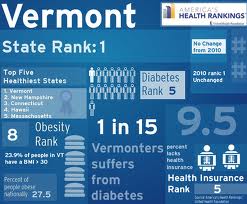Legislators are hearing from many constituents about S.199 – a bill to remove the philosophical exemption to vaccination. The vaccination schedule in Vermont has several sections: required for school, required for daycare and recommended. The required list includes MMR, polio, DtaP (where the P is for pertussis/whooping cough), chicken pox and HepB. The philosophical exemption is submitted for school or daycare entry for children whose parents have chosen to skip one or more of the required vaccines. Children that are missing a booster shot or are behind on the schedule would use a provisional admittance.
I have been following this bill closely since late January, and have been unable understand the underlying reasons why the Vermont Legislature is considering removing the philosophical exemption. The Vermont Department of health, doctors, epidemiologists, and pharmacists have covered a whole gamut of reasons why they support the bill – including many general concerns and ideas about the benefits of vaccines, risks of outbreaks, and uninformed parents. Yet, there was little or no information that convinced me that this is an issue of immediate concern to the health of Vermont’s children.
It is worth noting that according to the United Health Rankings we are the healthiest state in nation, with the second-lowest infectious disease rate. We rank 22nd for immunization in children age 19-35 months with a rate of 91.2% (the range is 83 – 96%, only two states in the nation are above 95%).
Given the healthiness of our state – why are legislators being told that the philosophical exemption is such a problem? The explanation I heard during testimony as to why exemption rates are rising is that parents are being misinformed about vaccine dangers and are using the exemption inappropriately. In reality, the recent changes occurred when new vaccines were added to the list of required vaccines. While it is not easy to find this information, the VT Dept of Health pinpoints the 2008 – 2009 school year as the place where exemption rates changed from about 2% to close to 6% (these numbers are for Kindergarten students) and the graph showing the data makes it very clear that the reason for the increase is “Varicella (chicken pox) and HepB requirement added to school rules in 2008.” Yet this information is being used to imply that schoolchildren are putting our communities at increased risk of polio, pertussis or measles.
Given this context, I found the testimony about uninformed parents who neglect their civic duty particularly offensive. Parents in Vermont care both about the health of their children and the health of their communities. We are not polarized over the issue of vaccinations. The proponents of the bill often talk about children that are “unvaccinated”, but one child can fall into both categories. Parents, grandparents, many doctors and school nurses know there are gray areas in the issue of vaccination choice and are respectful of parents making educated choices.
Is there a significant change in the vaccination rates for measles, pertussis or polio? A look at the data shows there isn’t: all of these rates are above 91% and the approximately 9% of remaining children include those on provisional admittance as well as exemptions. Are the recent pertussis cases due to the philosophical exemption? Health department information does not state that, and more than half of recent cases occurred in those who were fully vaccinated ( VT Dept of Health, January 2012 Health Advisory). Given these realities, are we passing judgment on the philosophical exemption based on emotional reactions to unclear information?
We deserve better than this. Our legislators deserve to be given accurate and clear information and parents deserve to be treated with respect. Our school communities should not be portrayed as a battleground over vaccines – that is not the reality. Vaccines are required for school and daycare. No one has suggested we do away with those requirements; parents are just asking that we respect and understand that vaccines are not one size fits all. The philosophical exemption is being used as it was intended, not because parents are lazy or scared.
I would hope that Vermonters can see what is going on and agree that this issue goes beyond finger pointing and blame. Our public health policy should be based on real information and real world examples. And the bottom line is the state of Vermont should continue to respect the authority of the parent in making medical decisions for their family.
– Joan Kahn
